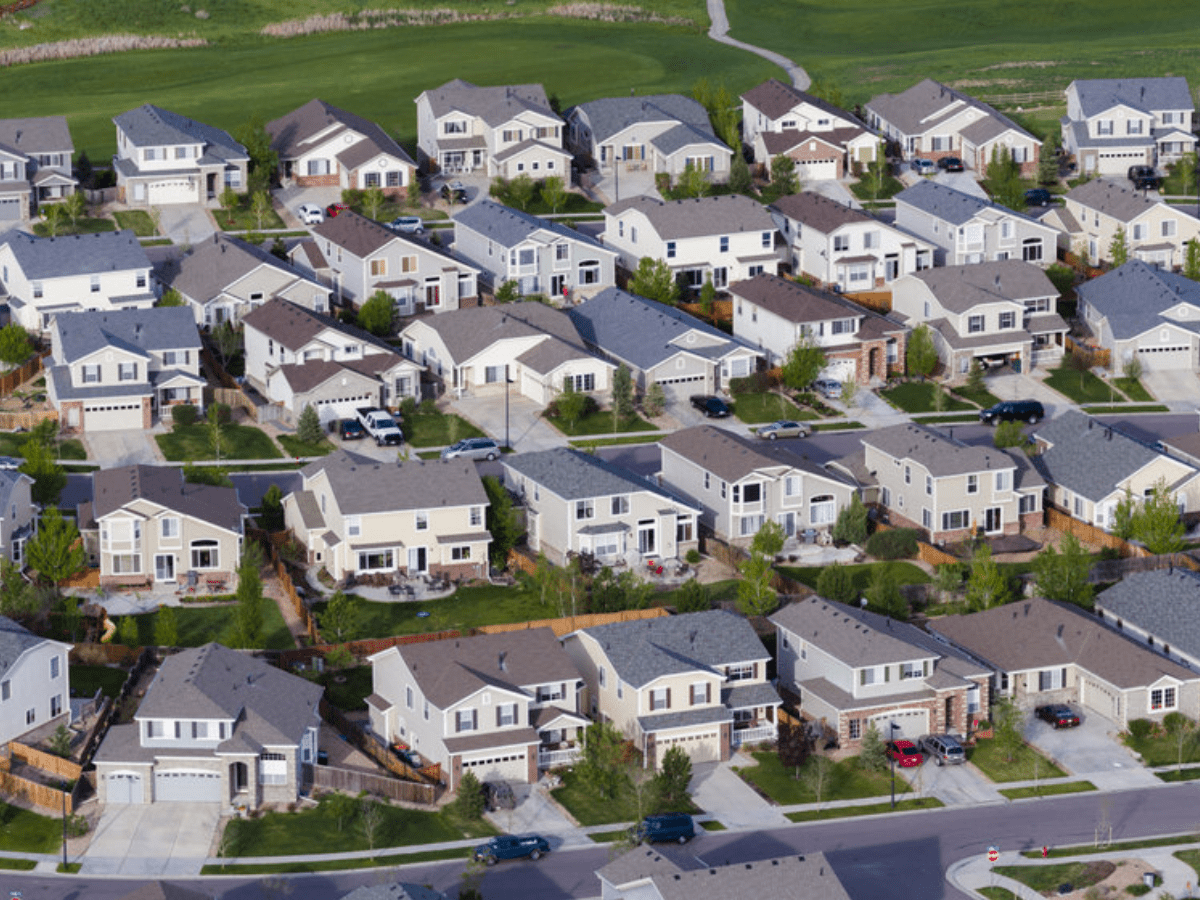
Should You Buy a House Now or Wait?
Homebuyers hoping for a drop in prices or mortgage rates this year were left disappointed. As of October 2024, the U.S. News Housing Market Index showed median home prices had risen 5.1% compared with last year, and 30-year mortgage rates stayed stubbornly above 6%.
In 2023 painful inflation kept the Federal Reserve’s benchmark interest rates high. But as consumer prices cooled in 2024, the Fed lowered rates three times—once in September, then November and most recently on December 18, with a quarter-point cut. However, the Fed signaled it would slow down the pace of rate cuts in 2025, as inflation remains above the 2% target.
Even with a full percentage point drop in interest rates compared with last year, mortgage rates remain elevated. A 30-year fixed mortgage is still around 6.85%, virtually the same as at the start of 2024.
That raises a big question: how will those rate changes affect the housing and mortgage markets? Many buyers are wondering if 2025 will bring better opportunities—or if they should buy now rather than wait.
The answer isn’t simple. Whether it’s the right time to buy depends entirely on your financial situation and personal goals. And though no one can predict the future of the housing market, understanding a few possible scenarios can help you make a decision that’s best for you.
Understanding Fed Rate Cuts and Mortgage Rates
The housing market often reacts to interest rate changes, with mortgage rates typically rising in a high-rate environment. However, don’t assume lower federal interest rates will automatically mean lower mortgage rates.
When the Fed trims the federal funds rate, it doesn’t directly affect long-term mortgage rates. Instead, Fed rate cuts influence short-term rates like those on Treasury bonds or credit cards. Long-term mortgage rates are shaped more by the broader economic factors that drive the Fed’s decisions rather than the rate changes themselves.
This year, the Fed cut its benchmark rate by one percentage point. But that’s already reflected in mortgage rates, which are holding steady at around 6%.
Interest rates are a major factor in deciding the right time to buy, but they’re not the only one. Affordability depends on many variables, and personal circumstances often carry more weight than market conditions.
When It Makes Sense to Buy Now
Sometimes life makes the decision for you—maybe it’s a new job, an expanding family, or an expiring lease. If you’re financially ready for homeownership, buying now can make sense. Owning a home allows you to start building equity and take advantage of benefits like tax deductions on mortgage interest and property taxes.
That said, make sure you’re prepared for the ongoing costs of homeownership including property taxes, insurance and maintenance, all of which tend to rise over time.
Renting is always an option, but buying now might be the right choice if you’re ready to settle down and can afford it.
Buy Now If High Interest Rates Don’t Worry You
Currently, average mortgage rates hover above 6% for a 30-year fixed loan. Though the Fed has hinted at two possible rate cuts in 2025, the pace of reductions will likely slow.
For those hoping for a sharp plunge in mortgage rates, it’s time to adjust expectations. The ultra-low rates of 3% to 4% seen during the pandemic were an exception, not the rule. According to Freddie Mac, since 1971 mortgage rates have typically hovered around 6% or higher, with only a few exceptions like the years following the Great Recession.
If you can comfortably manage today’s mortgage rates and monthly payments, buying now might be your best move. If rates slump in the future, you can always refinance to lower your monthly payments.
Buy Now If You Plan to Stay Long-Term
Renting can be a smart choice if your plans are uncertain—maybe you’re new to a city, exploring job opportunities, or anticipating changes in your family. Renting gives you flexibility while you figure out where you want to settle.
But if you’re confident you won’t be moving anytime soon, buying now could be the better decision. By buying now, you start building equity with every mortgage payment.
If prices rise, your investment grows. If prices fall, it’s less concerning because staying long-term gives you time for values to recover, leaving you in a good financial position when it’s time to sell.
Unlike renting, where you walk away with nothing, owning a home allows you to build wealth over time.
Wait to Buy If You Can’t Afford a Home at Today’s Rates
Homeownership is expensive—not just the down payment and closing costs but also ongoing expenses like maintenance, property taxes and insurance. In many areas, renting is more affordable than owning, even in low-cost markets.
For example, in Oklahoma City the median home price in October 2024 was $265,000, a jump of 8.2% from last year. To buy a home at that price, you’d need around $53,000 for the down payment and closing costs.
Financing the remaining $212,000 at a 6.85% interest rate for 30 years would mean a monthly mortgage payment of $1,389 (excluding taxes and insurance).
By comparison, the median rent in Oklahoma City is slightly higher at $1,371, but renters avoid extra costs like maintenance and property taxes, making it a more affordable short-term option.
If today’s mortgage payments and additional expenses would strain your budget, waiting to buy is likely the better choice.
Wait to Buy If the Right Home Isn’t Available
Housing inventory has climbed in 2024 with November marking the highest number of active listings since before the pandemic. However, the market still has a supply problem. If you can’t find a home that meets your needs, it may be wise to wait for more options to become available.
Because there’s a good chance inventory and demand will rise if interest rates drop. Many homeowners who locked in rates at 3% or 4% are hesitant to sell now. If rates dip into the low 6% range, more sellers may enter the market, giving buyers more choices.
Wait to Buy If You’re Struggling to Qualify
If you’re having trouble getting approved for a mortgage due to factors like income, debt levels, or current home prices in your area, it might be best to pause your search.
Use this time to strengthen your finances. Pay down debt, improve your credit score and set yourself up for success. A home purchase should never stretch you beyond your financial comfort zone.
Though mortgage rates could drop slightly by late 2024 or early 2025, they are unlikely to fall below 5.5%.
Remember, no one can predict the market with certainty. Instead of aiming to time the market perfectly, base your decision on your personal financial readiness and the time it takes to find a home that fits your needs.



